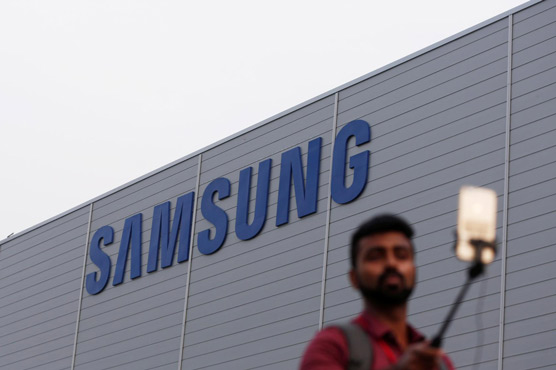Samsung crafts India comeback as anti-China wave surges

Samsung jumped to the No. 2 spot with 26% market share in the second quarter
NEW DELHI/SEOUL (Reuters) - Samsung Electronics Co Ltd (005930.KS) is forging a comeback in India’s smartphone market with a new range of budget devices and a ramped-up online presence, aiming to recoup ground ceded to Chinese rivals such as Xiaomi Corp.
Samsung, the only major non-Chinese player in the country, has already begun to gain ground, and a surge in anti-China sentiment in India following a border clash in June is expected to provide a fresh boost.
Samsung jumped to the No. 2 spot with 26% market share in the second quarter behind Xiaomi’s 29%, according to tech researcher Counterpoint, as the South Korean company’s diverse and inhouse supply chain helped it avoid product delays suffered by rivals during coronavirus lockdowns.
It was in third position with a 16% share in the previous quarter.
Once the unrivalled leader in the world’s second-biggest smartphone market, Samsung has over the past three years lost Indian customers to Chinese brands, whose devices are perceived as better value.
But India still accounts for some $7.5 billion in annual retail smartphone revenues for Samsung, according to Counterpoint, making it the company’s biggest market outside the United States.
It has built what it has described as the world’s largest mobile phone manufacturing plant on the outskirts of New Delhi, where it tests new devices and often assembles them for export.
That manufacturing power, and Samsung’s ability to source many components internally, is helping it gain ground amid the pandemic. Chinese smartphone brands Xiaomi and Oppo suffered local production hiccups and product delays due to COVID-19, but Samsung was able to keep delivering phones smoothly.
Now it is building on the momentum. Samsung has launched seven new smartphones since June, three of them under 10,000 rupees ($133.63) including its cheapest Android offering at $75.
“The COVID crisis has pushed people to use smartphones for everything from online education to digital payments to even connecting with friends on video calls. That’s why these budget phones are focused on the mass market,” said a source familiar with Samsung’s strategy in India.
In May, Samsung partnered with Facebook to train some 200,000 brick and mortar stores selling its phones to use social media for sales and marketing. It has also launched instalment-payment plans for customers and new incentive schemes, including one that gives student discounts on select devices.
A spokesman for Samsung said the company was seeing high demand for its devices in India and expected its revenues to increase from last year. The company does not provide a breakdown of revenues from individual countries.

